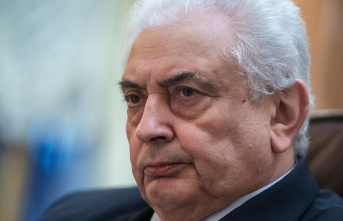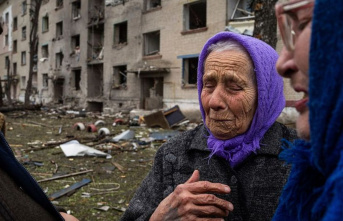In Israel, thousands of people across the country protested again on Wednesday against the planned judicial reform.
The central connecting road between Tel Aviv and Jerusalem was blocked several times. There were sometimes violent confrontations between demonstrators and the police, and several arrests were made. In Tel Aviv, according to eyewitnesses, the police used smoke bombs.
According to plans by the right-wing religious government of Prime Minister Benjamin Netanyahu, parliament should in future be able to overturn decisions of the Supreme Court with a simple majority. In addition, politicians should be given more influence in the appointment of judges. The proposed law could also play into the head of government's hands in a corruption trial that has been going on against Netanyahu for some time.
Draft law approved in first vote
A draft law was approved in a first vote in parliament on Wednesday, which is intended to make it much more difficult to declare a prime minister incapacitated. This would then require a three-quarters majority in Parliament. In addition, removal from office would only be possible on mental or other health grounds. Attorney General Gali Baharav-Miara warns that this change could lead to "absurd situations". It creates a "black hole" because it prevents any legal supervision. Three more readings are required for the law to come into force.
Critics see the reform as a threat to the separation of powers and warn that Israel could turn into a dictatorship. The government, on the other hand, argues that the Supreme Court currently wields too much political influence. Because Israel does not have a written constitution and the state is instead based on a set of basic laws, the Supreme Court is of particular importance in upholding the rule of law and human rights.











